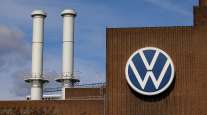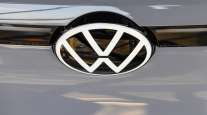Opinion: VW Settlement Offers Funds for Purchase of Natural Gas Trucks
Heavy-duty vehicles are the fastest growing segment of U.S. transportation in terms of energy use and emissions. Today’s just-in-time delivery expectation and expanding goods movement industry ensure the number of trucks on our roads won’t decline anytime soon. That’s good news for the freight transport industry and the positive economic activity that goes along with increased trucking.

Gage
But here’s the bad news…while heavy-duty vehicles total 7% of all vehicles on America’s roadways, they account for 50% of all smog-precursor emissions and 20% of all transportation-related greenhouse gases.
Over 125 million Americans reside in areas of exceedingly poor air quality; 40% of our population is regularly exposed to unhealthy levels of ozone and particulate matter.
The bottom line? If we want cleaner air, we need cleaner trucks.
There is an immediate and commercially available solution to this problem for fleets of all sizes and applications — expanded use of natural gas in transportation.
LIVEONWEB REPLAY: Powering the Trucks of Tomorrow
Natural gas vehicles have long been the choice of fleet managers interested in escaping the volatility of ever-changing gasoline and diesel prices. Natural gas currently powers passenger vehicles, medium-duty vehicles, short- and long-haul trucks, school buses, transit buses and shuttles, refuse trucks, construction and mining equipment, marine vessels and locomotives.
Consider: Natural gas is affordable. Natural gas is widely available with a well-established and growing infrastructure. Natural gas is abundant and domestically produced, with an estimated 100-year supply. Natural gas contributes to our nation’s energy security by reducing U.S. reliance on foreign petroleum-based fuels. Natural gas is cost effective and reduces maintenance costs. Natural gas is sustainable and the cleanest medium- and heavy-duty powertrain source with almost no tailpipe emissions.
In fact, the cleanest truck engines in the world are powered by natural gas. The Cummins Westport Ultra-Low NOx engine — made in America — is 90% cleaner than the Environmental Protection Agency’s current nitrogen oxide (NOx) standard. It is certified by both EPA and the California Air Resources Board to a 0.02 grams per brake horsepower hour (g/bhp-hr) standard, making it zero-emission equivalent (ZEE). When renewable natural gas is used to fuel it, even greater CO2 and GHG emissions reductions are achieved, helping to clean our cities and improve the environment.
The Volkswagen settlement Environmental Mitigation Trust offers a game-changing opportunity to accelerate the use of the cleanest medium- and heavy-duty powertrains on the market today — natural gas vehicles.
The settlement — an outcome of the automaker’s emissions cheating scandal — provides $2.9 billion to states to make public-private investments to clean their dirtiest air and encourages states to use these funds to replace Classes 4 – 8 diesel-powered trucks and buses. These funds can be used to retire older, dirtier vehicles and replace them with new, cleaner vehicles, thereby benefiting not only the businesses themselves but the communities in which they operate.
This week is an important one for the Trust as Dec. 1 is the deadline for state authorities to submit the certification required to become a beneficiary — an opportunity no state should ignore.
Natural gas technology is commercially available in the United States right now, not in a projected five or even ten years — as is the case with other heavy-duty alternative fuel technologies. Compared to expensive electric or fuel cell technologies still in development, investing in natural gas vehicles is the most cost-efficient use of the Volkswagen Settlement Funds — providing a solution that delivers more new vehicles and far more emission reductions than any other available alternative.
Diesel advocates will argue that this new funding should be spent on newer diesel rigs. But even new diesel engines — which require complex and expensive emission control systems to meet demanding standards — do not deliver the emission reductions that today’s NGVs provide.
NGVs are powered by American fuel, American technology and American innovation. They have the cleanest emissions profile of any fuel on the market today, and NGVs make a difference through a variety of applications — trucks, trash, transit, marine and rail.
We at NGVAmerica call on state leaders to maximize the VW Trust value proposition and achieve the most NOx reduction for funds expended by investing in natural gas vehicles. And we encourage fleet owners committed to sustainable, affordable and cost-effective powering alternatives to access soon-to-be available VW Trust funds to facilitate the switch to the pure power of natural gas transportation.
When it comes to the air we breathe, the right choice is the affordable, mature and commercially ready-right-now solution…natural gas vehicles.
Daniel Gage is President of NGVAmerica, a national organization of over 200 companies, environmental groups, and government organizations dedicated to the development of a growing, profitable, and sustainable market for vehicles powered by natural gas or biomethane. NGVAmerica member companies produce, distribute, and market natural gas and biomethane across North America, manufacture and service natural gas vehicles, engines, and equipment, and operate fleets powered by clean-burning gaseous fuels. Learn more at: www.ngvamerica.org.




